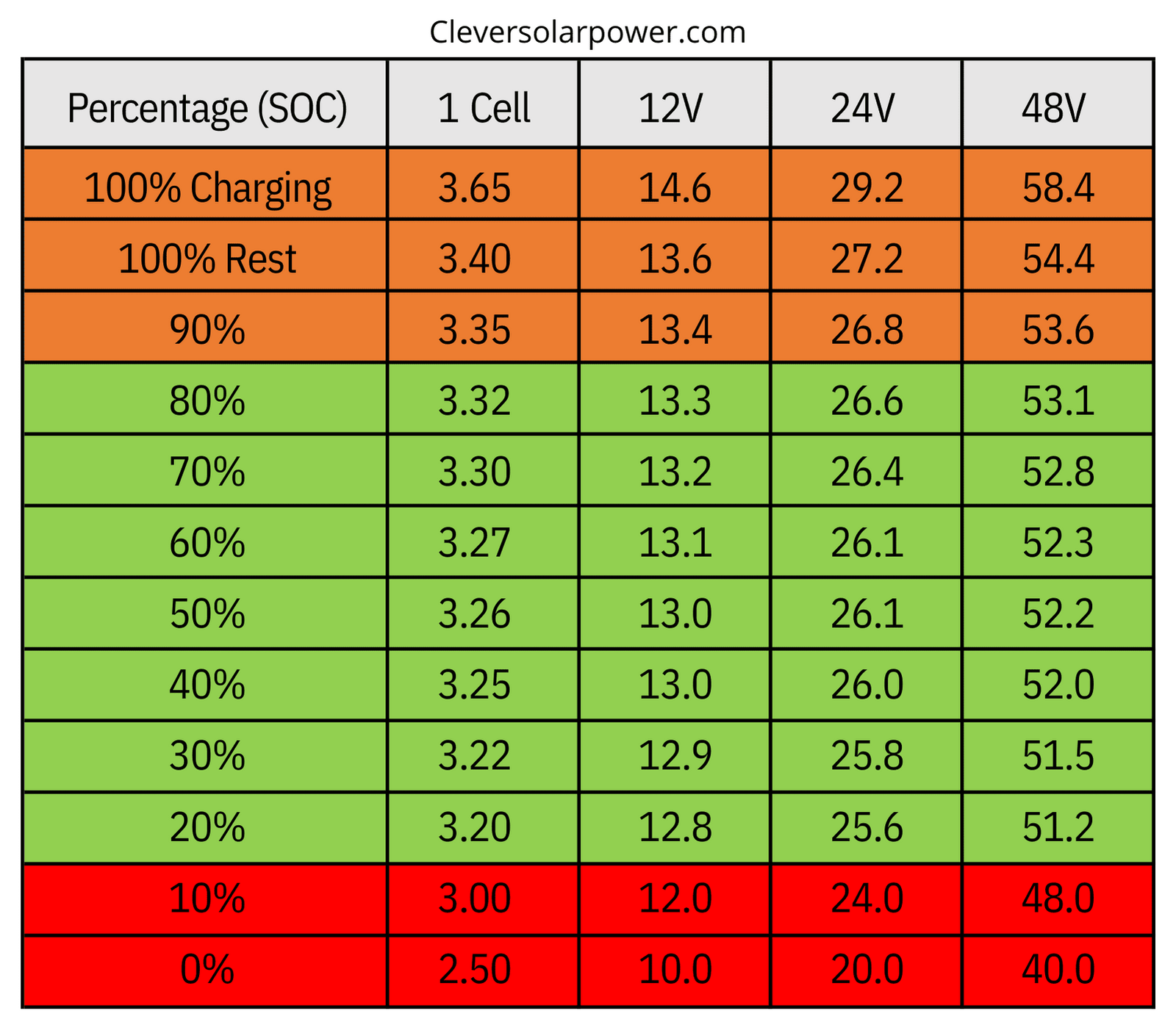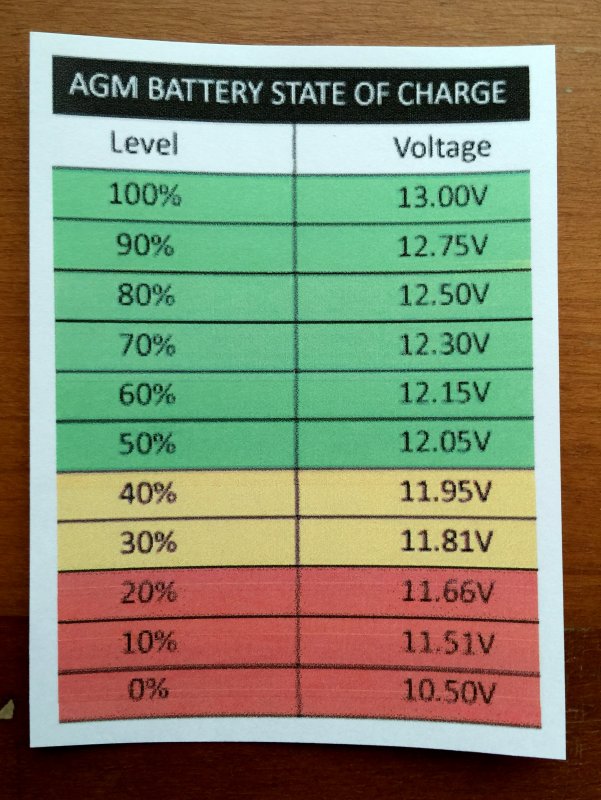Supreme Tips About Is 14.1 Battery Voltage Good

Decoding Your Car's Electrical Health
1. Understanding Battery Voltage Basics
Ever wondered what those numbers mean when you glance at your car's voltage meter? It's not just random digits; it's a window into your battery's well-being! When we talk about "Is 14.1 battery voltage good," we're diving into a crucial aspect of your vehicle's electrical system. Think of your car battery as a reservoir of power, ready to spring into action whenever you turn the key. A healthy battery ensures a smooth start and keeps all the electrical components humming happily.
The standard voltage for a car battery is typically around 12.6 volts when the engine is off. This is considered a fully charged, healthy battery. However, the magic happens when the engine starts and the alternator kicks in. This is where that 14-ish volt reading becomes important. The alternator's job is to not only power the car's electrical systems while it's running but also to recharge the battery. So, let's get to the bottom of whether 14.1 is a good number.
Now, if your car is displaying 14.1 volts, take a deep breath — things are likely looking pretty good! That voltage reading indicates that your alternator is doing its job correctly, charging your battery effectively. It means your car's electrical system is receiving adequate power and that your battery should be maintained at a healthy level. It's like the alternator is saying, "I got this!"
Think of it like this: 12.6 volts is the battery at rest, sipping a cup of coffee, while 14.1 volts is the battery working out at the gym, getting recharged and ready for the next adventure. It's a sign of a charging system in harmony. But remember, context matters, and we'll dig into that next.

What Car Battery Voltage Is Too Low Spheral Solar
The Sweet Spot
2. The Goldilocks Zone of Voltage
So, why is 14.1 volts often considered the sweet spot? It's all about striking the right balance. The alternator needs to produce enough voltage to overcome the battery's internal resistance and effectively push current back into it, replenishing its charge. Too low, and the battery won't charge properly; too high, and you risk overcharging, which can damage the battery over time.
A voltage around 14.1 volts is generally high enough to recharge the battery without causing excessive heat or electrolyte loss, which are common problems with overcharging. Modern car charging systems are designed to regulate the voltage within a specific range, typically between 13.8 and 14.4 volts, to maintain the battery in optimal condition. So, 14.1 falls nicely within that range, putting your mind at ease.
Think of it like baking a cake. You need the right temperature to ensure the cake rises properly and doesn't burn. Similarly, the alternator needs to deliver the correct voltage to keep the battery healthy and happy. It's a delicate dance of electrons and chemical reactions, all carefully orchestrated by your car's electrical system.
However, before you start celebrating with that cake, it's essential to remember that voltage can fluctuate slightly depending on various factors like temperature, the car's electrical load (e.g., headlights, AC), and the battery's age. So, let's explore what might cause deviations from that ideal reading.

LiFePO4 Voltage Charts (1 Cell, 12V, 24V, 48V)
When 14.1 Battery Voltage Might Not Be The Whole Story
3. Considering External Factors
While 14.1 volts is generally a good sign, it's essential to consider other factors that can influence the voltage reading. For example, the ambient temperature can affect the alternator's output. In colder weather, the alternator might produce slightly higher voltage to compensate for the increased resistance within the battery. Conversely, in warmer weather, the voltage might be slightly lower.
Also, the electrical load on the car can play a role. If you have a lot of accessories running — headlights, AC, radio, heated seats — the alternator might need to work harder to keep up, potentially causing the voltage to fluctuate slightly. It's like trying to run a marathon while carrying a backpack full of bricks; it's going to require more effort.
Furthermore, the age and condition of the battery itself can affect the voltage readings. An older battery might have increased internal resistance, requiring the alternator to work harder to maintain the desired voltage. Or, if the battery has damaged cells, it may not accept a charge correctly, skewing the readings. Therefore, it's crucial to look at the big picture.
Basically, seeing 14.1 on the voltmeter is a good starting point, but a professional assessment is invaluable if you suspect any issues. It's like seeing a green light on a diagnostic test, it gives you an idea of the condition of the car, but more in-depth analysis is needed.

Troubleshooting Voltage Issues
4. Taking Action if Needed
If you're concerned about your car's voltage readings, there are a few steps you can take to troubleshoot the problem. First, make sure your battery terminals are clean and free of corrosion. Corrosion can impede the flow of electricity and cause inaccurate voltage readings. A simple cleaning with a wire brush and some baking soda solution can often make a big difference.
Next, check the battery cables to ensure they're securely connected to the terminals. Loose or corroded connections can also cause voltage fluctuations. Give the cables a good wiggle to see if they're securely attached. If the connection is poor, you may see voltage drops and erratic behaviour.
If you've checked the connections and cleaned the terminals, and you're still seeing unusual voltage readings, it's time to consider having your battery and alternator tested by a professional. Many auto parts stores offer free battery and alternator testing services. These tests can provide valuable insights into the health of your battery and charging system.
Let's say the auto parts store tells you the battery and alternator are fine. But you still have concerns. One last check you can do is to use a multimeter to test the voltage at the battery terminals while the engine is running. This can help confirm the voltage reading you're seeing on your car's gauge. If the multimeter shows a significantly different reading, there might be an issue with your car's electrical system or the gauge itself.

Frequently Asked Questions (FAQ)
5. Your Burning Battery Voltage Questions Answered
Let's tackle some of the common questions related to battery voltage and what it all means.
Q: What voltage should my car battery read when the engine is off?
A: A healthy car battery should read around 12.6 volts when the engine is off. Anything significantly lower than that could indicate a problem.
Q: Is it okay if my voltage goes above 14.5 when charging?
A: While a slight fluctuation above 14.5 volts might be normal in certain situations (especially in cold weather), consistently high voltage can lead to overcharging. It's best to have it checked by a professional if you're concerned.
Q: Can a bad alternator cause a car battery to drain quickly?
A: Absolutely! If the alternator isn't properly charging the battery while the engine is running, the battery will eventually drain, leaving you stranded. A faulty alternator is a common cause of dead batteries.
Q: How often should I have my car battery tested?
A: It's a good idea to have your battery tested at least once a year, or more frequently if you live in an area with extreme temperatures. Regular testing can help you catch potential problems before they leave you stranded.In summary, "Is 14.1 battery voltage good?" often indicates a healthy charging system. Monitoring it, along with considering other factors, is vital for preserving your battery's life.
